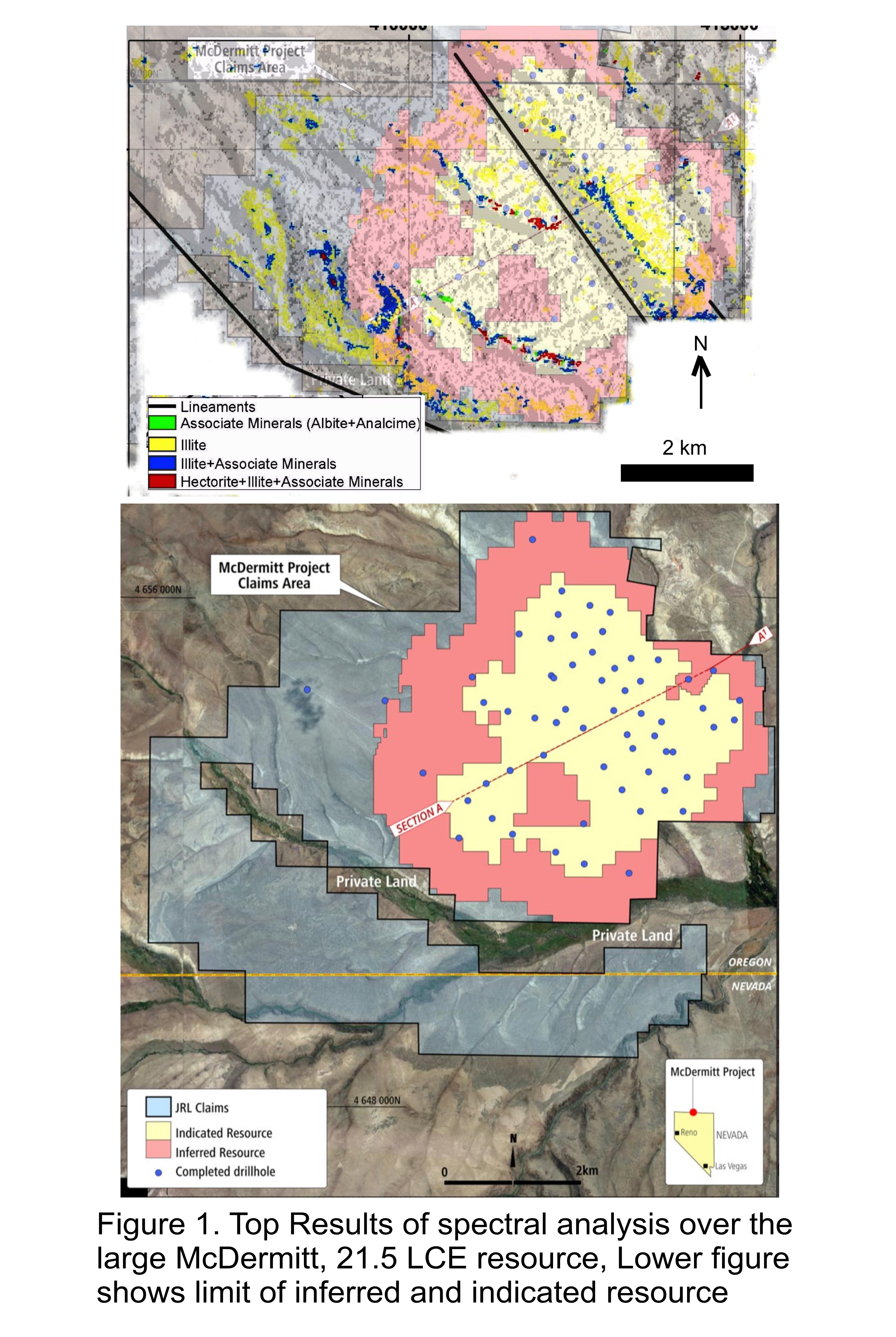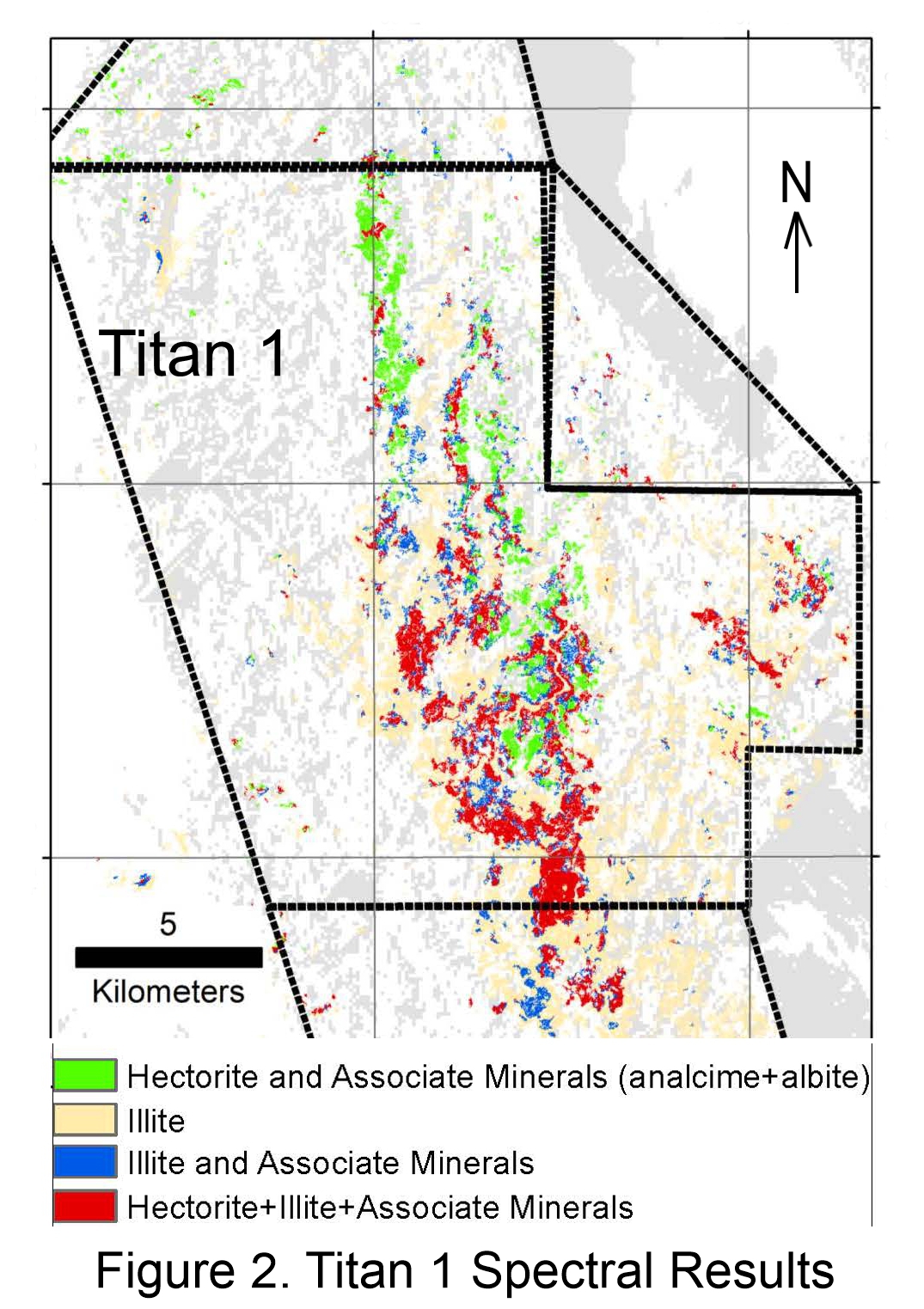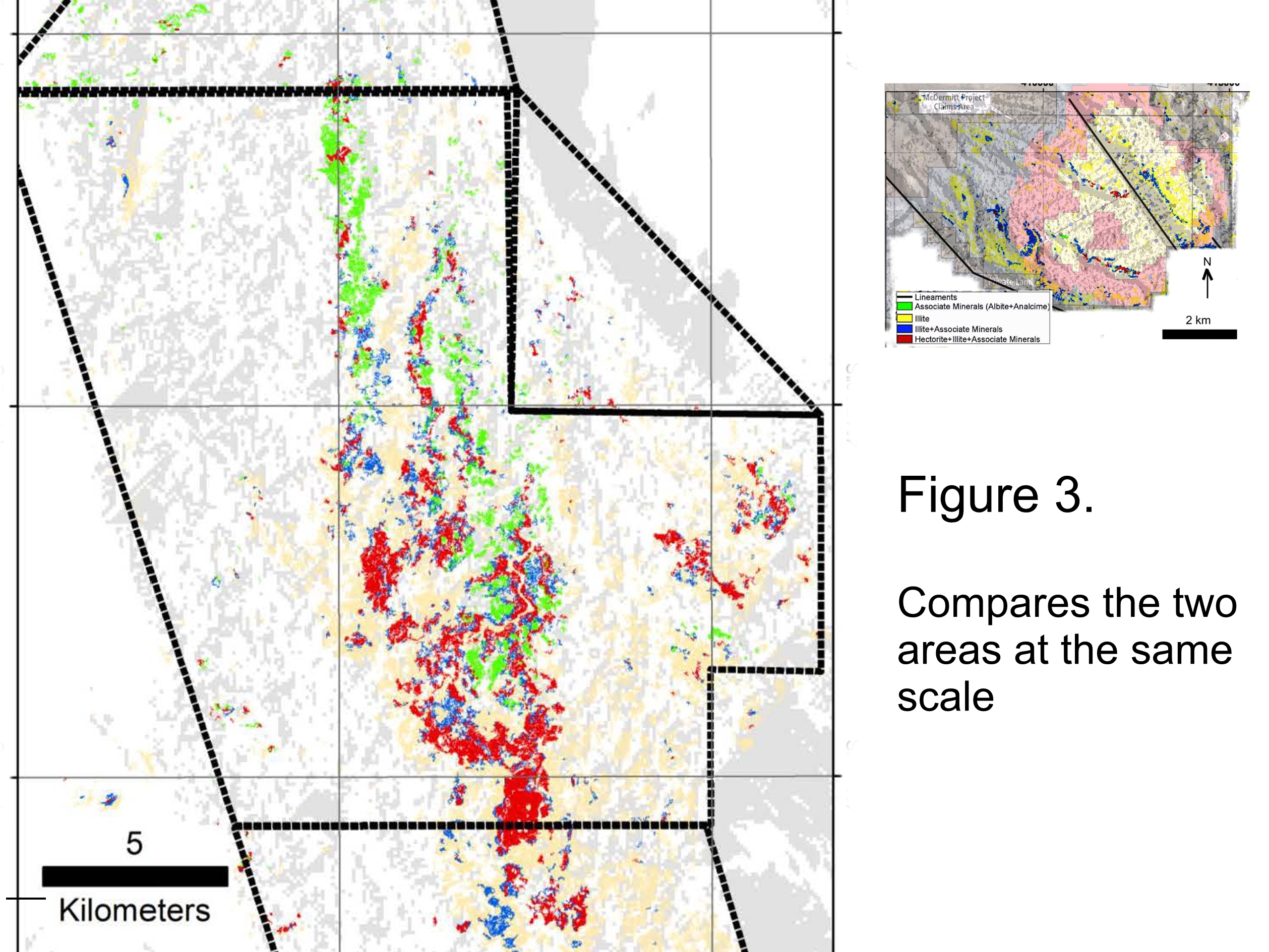ASTER DATA IDENTIFIES HUGE SPECTRAL ANOMALY AT TITAN 1
Las Vegas, NV., Jan. 30, 2024 (GLOBE NEWSWIRE) — Titan Lithium Inc., (OTC Markets: CDSG) (the “Company” or “CDSG”) is pleased to announce that it received a report detailing a completed multispectral ASTER analysis across the large Titan 1 Lithium Project area in Tanzania. The contents of the report covers an examination of spectral data conducted in late 2023 and represents an important fully independent confirmation of the company’s observations recorded to-date on the projects as well as providing multiple new high value targets.
The term ASTER stands for the Advanced Spaceborne Thermal Emission and Reflection radiometer. Optical and thermal remote sensing data from satellites has been an important tool in geological exploration for more than four decades. ASTER covers a wide spectral region from visible to thermal infrared by 14 spectral bands with high spatial and spectral and radiometric resolutions.
Such multispectral analysis has been employed to pinpoint mineral deposits including potential locations of pegmatite-hosted lithium occurrences. Within large lithium-rich brine areas such as the Salar de Atacama in Chile, ASTER data has shown that it can be used to map key lithological and mineralogical components of the lithium-bearing playas such as altered rocks and hectorite bearing clay.
Within the southwest U.S. spectral anomalies have been identified which relate to mineral assemblages of accessory and lithium hosting sediments over several of the large known lithium resources in this large region.

Figure 1 shows hectorite, illite and other accessory minerals anomalies over the large 21.5 million tons Lithium Carbonate Equivalent (LCE) McDermitt resource currently under exploration by Jindalee Lithium. The McDermitt project sits approximately 22miles (35kms) north of the 19.5 million ton LCE resource of the Thacker Pass deposit.

Figure 2 shows the results of the examination of the spectral endmembers from the USGS spectral library over the Titan 1 area. Key targeted minerals were identified (hectorite, illite, analcime, albite) in Titan1, of which both hectorite and illite appears to be the dominant minerals.
The study was initiated and completed by Dr. Elisante Mshui from the School of Mines and Geosciences at the University of Dar es Salaam. This analysis was implemented to find potential lithium bearing prospects within Tanzania and was conducted completely independently of our work in the area.
The observed spectral anomalies at Titan 1 mainly form a large cluster in the central portion of prospective area, precisely where the majority of our 2023 geochemical and geological work has been conducted. The data provides CDSG good corroboration of our own observations, however, the study also highlights additional large unexplored clusters of key minerals, which present new sites to follow up in 2024.

Figure 3 shows the spectral mineralogical data from the Titan 1 project compared at the same scale with the data from the McDermitt site.
“We are greatly encouraged and excited by the analysis Dr. Mshui has provided,” states Craig Alford, PGeo and CEO of Titan Lithium. “The spectral characteristics that align with pathfinder and host mineral assemblages that occur within other lithium-rich deposits such as illite and hectorite gives us confidence we are in a significant area. We look forward to utilizing the ASTER mineral mapping to focus on the many new highly prospective areas not yet tested.”
About the Company: China Dongsheng International Inc. (OTC Markets: CDSG), through its wholly owned subsidiary Titan Lithium, Inc., is a lithium explorer and developer with operations in Nevada, USA and The United Republic of Tanzania.
Contact:
Harp Sangha-Chairman
sanghaharp1964@titanlithiuminc.com
+1-702-595-2247
titanlithiuminc.com
Forward-Looking Statements:
This press release may contain “forward-looking statements” within the meaning of the Private Securities Litigation Reform Act of 1995, such as statements relating to financial results and plans for future development activities and are thus prospective. Forward-looking statements include all statements that are not statements of historical fact regarding intent, belief or current expectations of the Company, its directors or its officers. Investors are cautioned that any such forward-looking statements are not guarantees of future performance and involve risks and uncertainties, many of which are beyond the Company’s ability to control. Actual results may differ materially from those projected in the forward-looking statements. Among the factors that could cause actual results to differ materially from those indicated in the forward-looking statements are risks and uncertainties associated with the Company’s business and finances in general, including the ability to continue and manage its growth, competition, global economic conditions and other factors discussed in detail in the Company’s periodic filings with the Securities and Exchange Commission.
![]()
